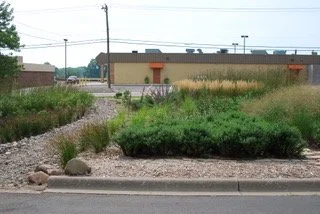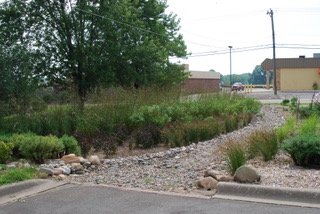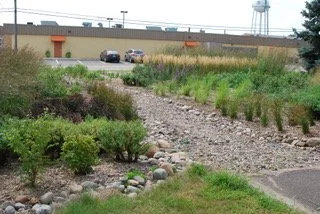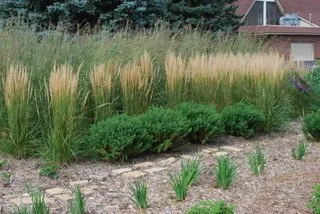Solar Power
Our solar system was installed by Cedar Creek Energy in the fall of 2024 and was turned on for service on March 20, 2025. The project had a total cost of installation of $174,000 of which Xcel Energy and the federal government would supply rebates of nearly $100,000. This project would not have been possible without a memorial in memory of David Bower for $70,000. To cover the upfront cost of that $100,000 we took out a loan from the ELCA Mission Investment fund.
Unfortunately, the federal government will not accept us filing for reimbursement for this project until the spring of 2026. This leaves us on the hook for $54,000 of the loan that is accruing interest each month. If you would like to make a gift to help subsidize this cost, you can give here and select the Environmental Stewardship fund.
Rain Garden
The All Saints Rain Garden is one way we live out our commitment to care for God’s creation. It captures and filters rainwater that would otherwise run off our parking lot into storm drains and the Mississippi River. The garden also provides food and shelter for birds, butterflies, and other pollinators, turning a once-problematic area into a thriving habitat that reminds us of renewal and grace.
History
The rain garden at All Saints was created in 2009 after stormwater from our large parking areas began causing flooding problems for downhill neighbors and nearby storm drains that flow to the local waterways. Wanting to be good neighbors and good environmental stewards, members of All Saints partnered with the Washington County Watershed District to design a solution. Volunteers planted deep-rooted native species, created a rocky wadi for heavy rains, and maintained the site through the years. The space has become a community feature—home to a Food Pantry and a certified Monarch Way Station that welcomes pollinators and neighbors alike.
Updates:
Since 2025, All Saints has been working with the Washington Conservation District and South Washington Watershed District to restore and rebalance the garden. Plans include replacing fast-growing plants with a wider variety of natives, improving stormwater capacity, refurbishing the wadi pathway, and repurposing paver stone to provide a stable walkway to the Food Pantry. The updated design will continue to nurture pollinators throughout the site, and the upcoming parking lot project may allow for regrading that channels even more stormwater into the rain garden—deepening its impact on our neighbors and God’s creation.





